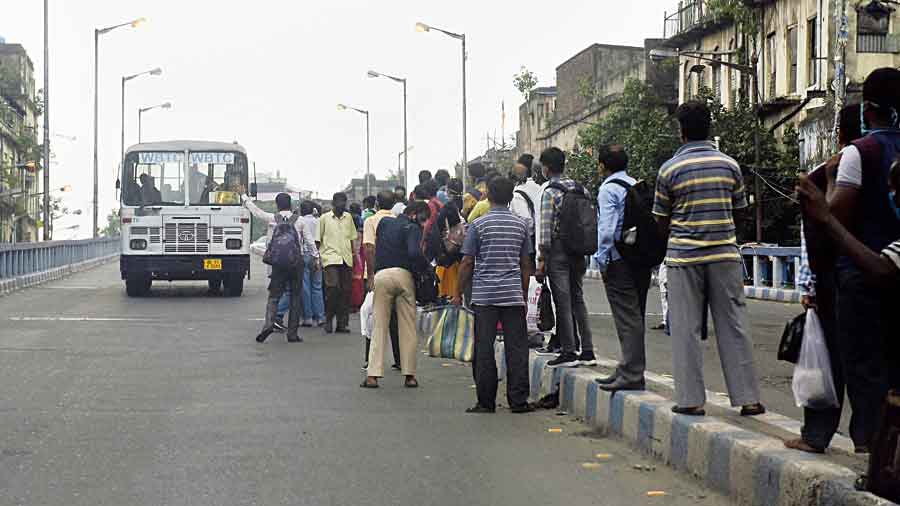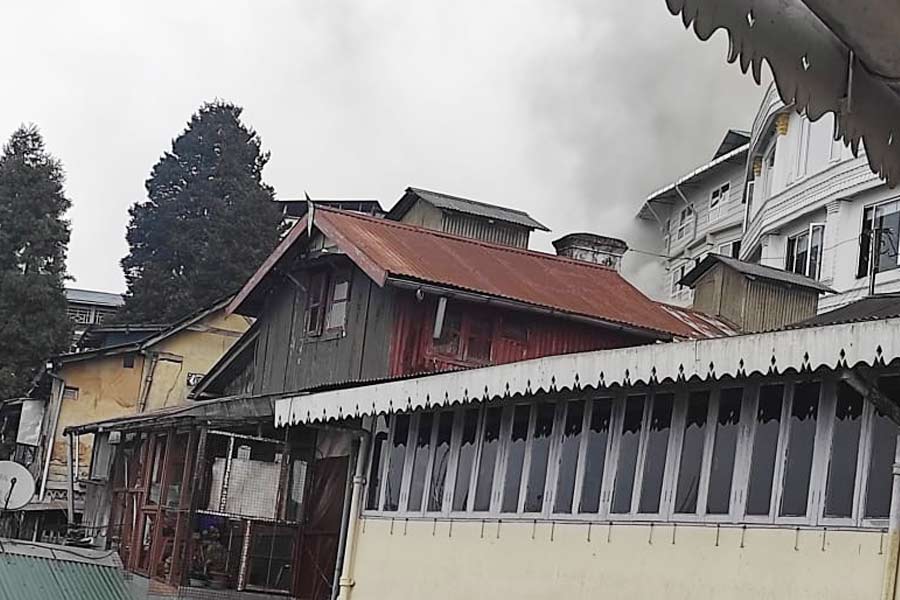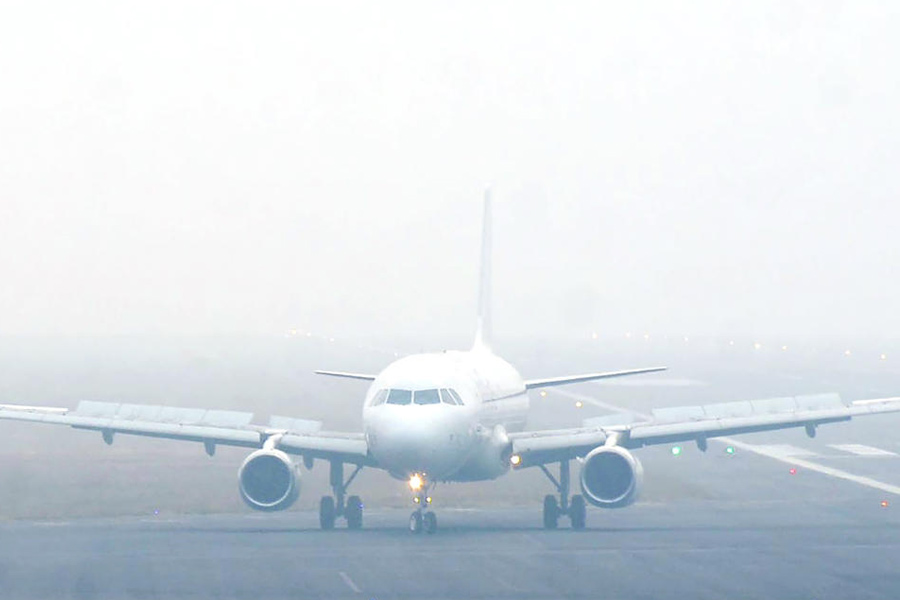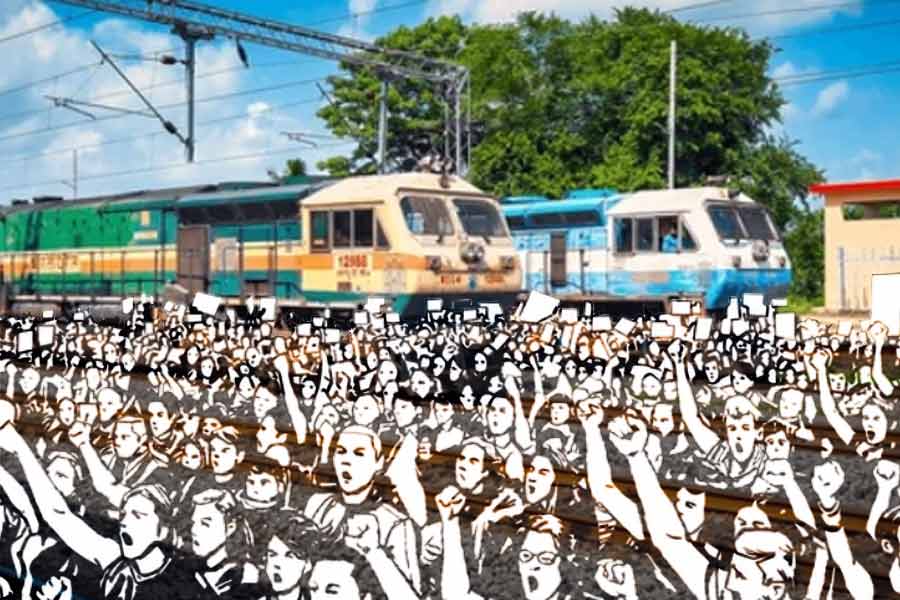Rabi Mandal of Sonarpur ended up spending around Rs 80 on Friday to reach his office in Beltala near Bhowanipore, changing auto rickshaws four times in between.
On other days it would cost Mandal Rs 14 to cover the same distance on two private buses.
If the Bengal government had agreed to a bus fare hike that the operators were pressing for, Mandal would have had to spend Rs 30 at the most.
That is Rs 50 less than what he ended up paying on Friday.
The state government’s ploy to somehow stall a bus fare hike is hurting people more. Several commuters like Mandal are being forced to opt for autos as their only mode of transportation since state buses are few and far and even the ones that are available have been running packed to their capacity.
Across several routes in Calcutta, a section of auto operators have made full use of their near monopoly on the roads and demanded fares way higher than the existing ones.
“I would usually take a private bus from Garden Reach to reach my office at Ballygunge Phari. Now I have to take at least three auto rides and that costs more than four times the amount I would have paid for bus fare,” said Md Anwar Hossain, who has to physically report for work on working days.
Across bus stops there were scores of people looking for a commute. In the few buses that were on the roads, passengers were hanging from the footboards.
The government does not seem to have a solution. An official said “we will wait and watch” that roughly translates to “we don’t have a clue”.
“On Friday, the number of private buses was a shade more than what it was on Thursday,” the official added. “Private operators are also opting to wait and watch before some of them start bringing out their fleet.”
The official also promised more government buses from Monday.
Transportation experts said was unlikely to bring about much difference.
In Bengal, private buses and minibuses account for nearly 72 per cent of the total fleet, unlike other large states like Tamil Nadu and Maharashtra where the share of the government buses is much higher.
Several experts in transportation economics said as the dependence on private buses in Bengal, any attempt to corner private bus operators without creating viable alternatives would result in monopoly of other modes of transportation like autos and e-rickshaws who would fleece optionless passengers.
Several academics said a regulatory commission should be in place to decide fares considering four broad parametres — the hike in the price of diesel over the past few years, the wholesale price index, the consumer price index and the cost of investment of the operators.
“In August 2014, chief minister Mamata Banerjee had announced a task force on the bus fare structure would meet every time the diesel price changed by Rs 2 a litre,” said Tapan Bandyopadhyay of the Joint Council of Bus Syndicates. “However, the task force never met even once.”
In June, the state government had set up a three-member committee to look into the demands of private bus operators and draw up a recommendation for the government.
The committee members haven’t met even once.
During Unlock-1, several private bus operators had drawn up a fare chart with two broad options that suggested a three fold and a nearly two-fold rise in the existing fares. The state government had turned down the proposal saying bus operators had no right to decide their fares.
“We are not proposing any fare structure this time. But since the passenger count is less than half now and price of diesel has shot up several times, the fare should be at least double the existing one,” said Pradip Narayan Bose of the West Bengal Bus and Minibus Owners Association.











